Haas stung by removal of Cauberg from Amstel Gold Race
Australian hits pause button with Ardennes and Giro d'Italia in mind
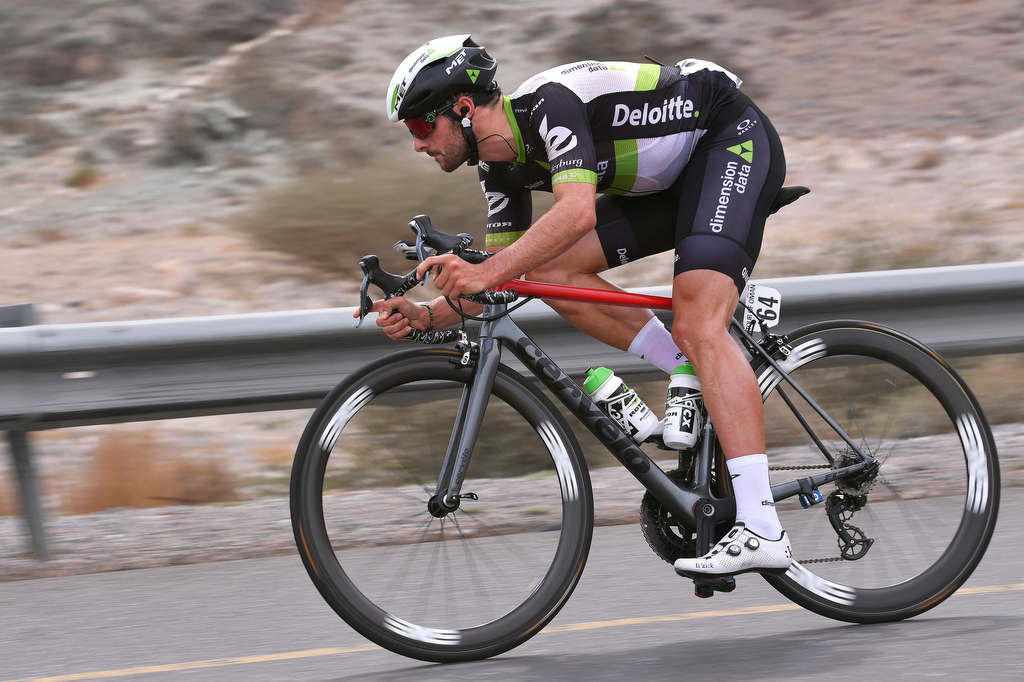
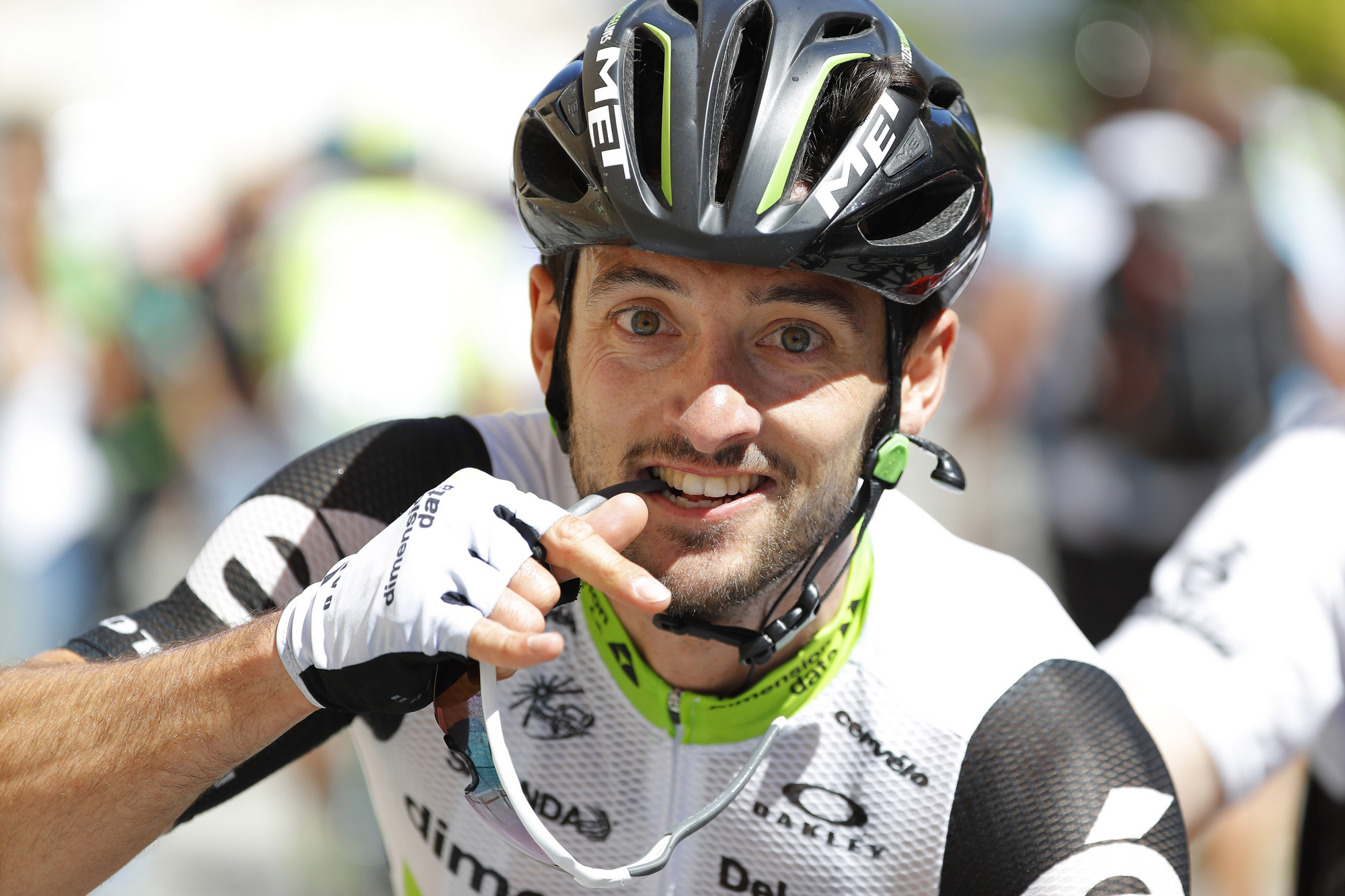
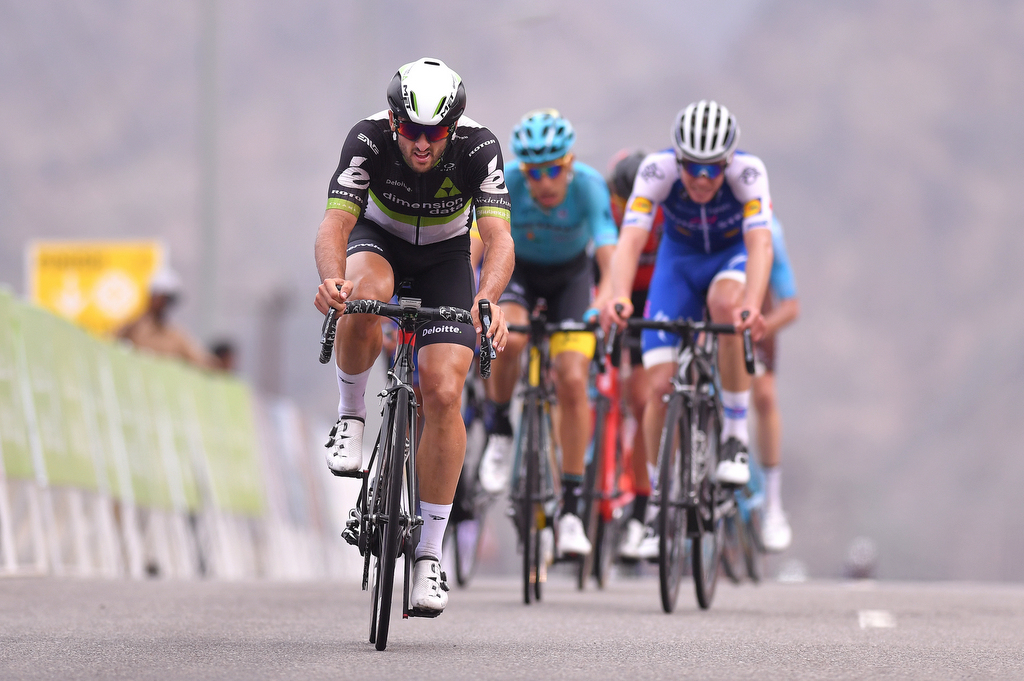
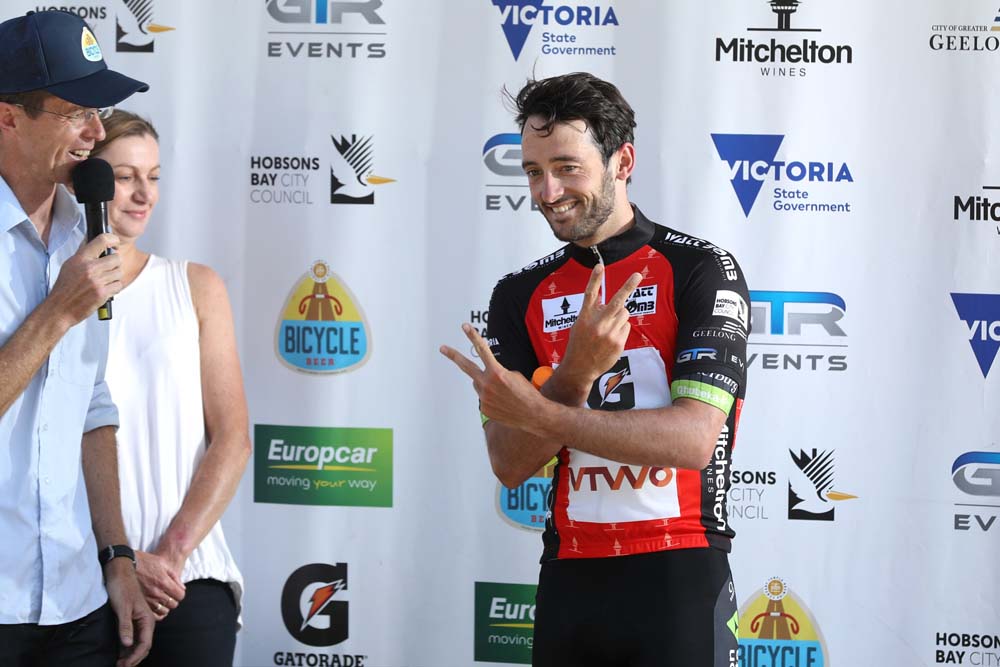
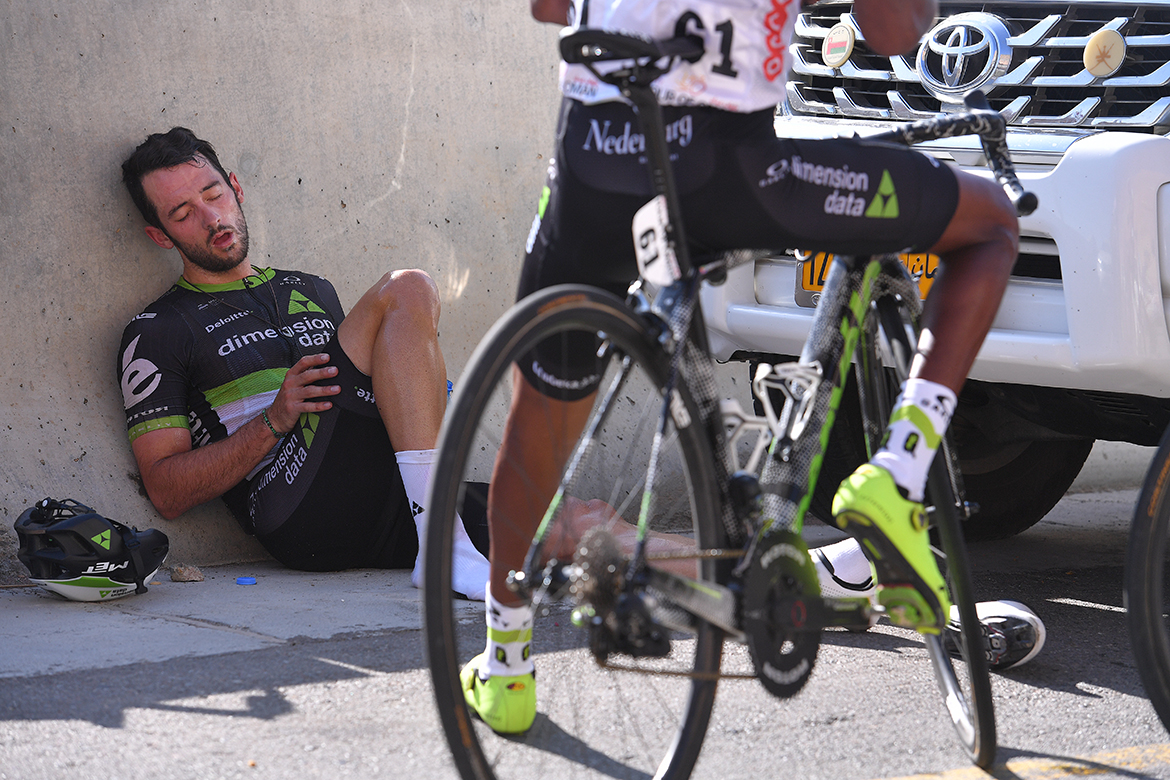
After spending much of December seeking out Antipodean replicas of the Cauberg as he trained amid the Adelaide hills, Nathan Haas (Dimension Data) didn't quite know what to think when the organisers of Amstel Gold Race announced that they were removing the climb from the finale of the Dutch classic.
"I can't tell you how many times I've been up a couple of climbs in training and in my mind I'm just picturing going up the Cauberg for the last time and then continuing over for a flat sprint," Haas told Cyclingnews. "It's been in my head for a long time but I'll have to quickly ditch that idea and reassess."
Haas has taken most things in his stride so far in an early season where he has been one of the peloton's stand-out performers. In 13 days of racing in 2017, Haas has only twice finished outside the top 10. Second place to Riche Porte on Willunga Hill and fourth overall at the Tour Down Under set the tone, and at the Tour of Oman this week, the Australian has continued to impress across multiple terrains.
Fifth in the uphill sprint at Al Bustan, Haas then took fourth on the flat stage at the Ministry of Tourism, and then came home ahead of no less a figure than Romain Bardet (AG2R La Mondiale) to place ninth atop Green Mountain. Despite that fine run of form, Sunday's final leg of the Tour of Oman will be Haas' last competitive outing for five weeks.
"My heart wants to keep racing because it's going well but my brain knows if I want to really hit my goals, which are the Ardennes Classics and the Giro, then it's going to be more intelligent to hit the pause button now, put the form away for a little bit and maybe try to build it up again," Haas said.
"Even if my form for the Ardennes as it has been so far, then I'll be really happy. But maybe there's more to find in the next five weeks. But I'll probably approach it with a pretty relaxed mindset: when you've had a good start to the year, it lets you be a bit more relaxed."
The only thing lacking from Haas' opening weeks of the season has been a victory. Climbing better than quicker sprinters and sprinting better than stronger climbers seems a robust formula for success but solving for the variable has proved elusive thus far, even if Haas wears any frustration lightly.
Get The Leadout Newsletter
The latest race content, interviews, features, reviews and expert buying guides, direct to your inbox!
"There've been lots of close ones. The funny thing is, I've been getting top fives in sprints against Caleb [Ewan] and [Peter] Sagan and [Alexander] Kristoff, but then I've also been getting second on climbs to Richie Porte," Haas said. "I just didn't get that perfect mix between a climb being hard enough to get rid of those fast guys, and a climb being so hard that a guy like Richie Porte just whips away from the whole bike race, and then you're left in a race for the next normal human. The stars didn't align, but I'm happy with how it's gone."
28 next month, Haas' development since swapping Cannondale for Dimension Data was already apparent throughout 2016, most notably at the tail end of the season, when he won a stage of the Vuelta a Burgos and performed strongly at the Canadian WorldTour races. The change in team environment was surely a factor, while a heavy block of off-season work appears to have ensured none of that momentum was lost coming into the current campaign.
"I was locked up in an AirBnB in the Adelaide hills for all of December and just by accident you do a four-hour ride and you've done 3,000 metres of climbing," he said. "I think that's maybe something, I was just doing more climbing than I normally like to do in training. I basically turned my power meter off for December and rode until I was feeling fit."
Haas travels on to his European base in Girona after the Tour of Oman, and he will return to the peloton on 'home' roads at the Volta a Catalunya. He then heads on to Belgium and the Netherlands in late April, with the Tour de Romandie and Giro to follow immediately afterwards – "Hence the break being pretty important."
That spell away from racing, meanwhile, will allow Haas to ruminate further on the new finale to Amstel Gold Race. Edvald Boasson Hagen, for instance, could become a useful foil. "I think our teams can be one that profits from it," Haas said. "Does it sort of hurt me personally compared to what are my strengths? Yes, but maybe it opens the race up for us in another way."

Barry Ryan was Head of Features at Cyclingnews. He has covered professional cycling since 2010, reporting from the Tour de France, Giro d’Italia and events from Argentina to Japan. His writing has appeared in The Independent, Procycling and Cycling Plus. He is the author of The Ascent: Sean Kelly, Stephen Roche and the Rise of Irish Cycling’s Golden Generation, published by Gill Books.